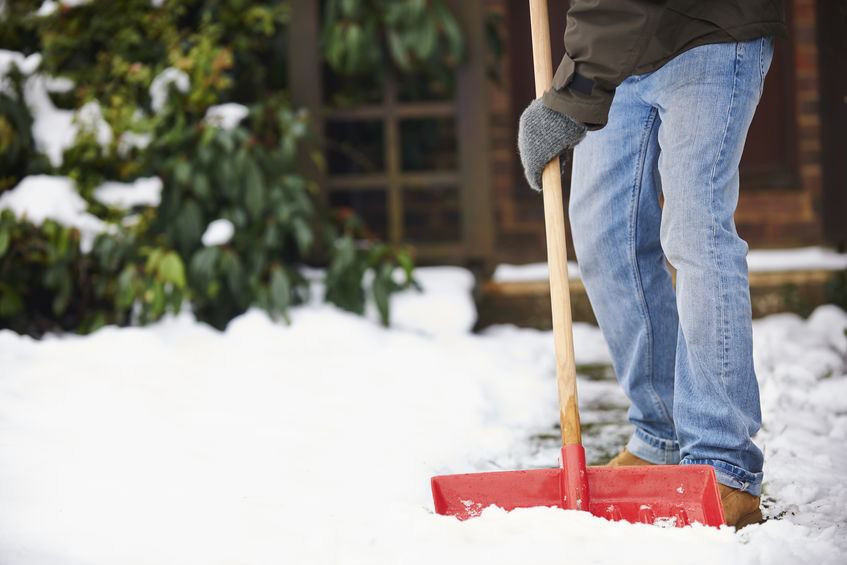Posts Tagged ‘“premises liability”’
Essential Safety Tips for Massachusetts Homeowners with Backyard Swimming Pools
 Over the past year, many of us have missed out on seeing friends and loved ones. If you are planning a summer gathering to make up for lost time, we urge you to consider water safety, especially if you own a backyard swimming pool.
Over the past year, many of us have missed out on seeing friends and loved ones. If you are planning a summer gathering to make up for lost time, we urge you to consider water safety, especially if you own a backyard swimming pool.
With Massachusetts schools about to start summer break, there is a high level of distraction in many homes. Households may have family members working remotely and summer may add to the unpredictable schedules we established during the COVID-19 emergency. But you must be vigilant if you own a pool because the risk for injury is very real. One can drown quickly, in a matter of seconds, and those injured are often young children.
According to the Consumer Product Safety Commission (CPSC), an average of 397 children were killed in swimming pool or spa submersions each year from 2016 to 2018. These children were all under 15 years old. During the same period, there was also an annual average of 6,200 children under 15 treated at hospitals for non-fatal injuries associated with pool or spa submersions.
Already in Massachusetts this year, we have seen several lives lost or nearly lost to drownings in swimming pools, ponds and lakes. In this blog, we focus on how homeowners can reduce the risk for injury and drowning in backyard swimming pools, and their legal responsibilities.
Massachusetts Property Owners Have a Duty to Use Reasonable Care
In Massachusetts, homeowners have a responsibility to use reasonable care to keep their property in reasonably safe condition. When it comes to swimming pools, a property owner’s duty starts with following Massachusetts building regulations to secure pools. They must also maintain safe areas around pools.
It is paramount that Massachusetts homeowners also exercise caution with alcohol. Homeowners can reduce the risk for many drownings and injuries by simply limiting their own alcohol consumption and that of all their guests of legal drinking age. Minors should never be allowed to consume alcohol or a homeowner can face criminal charges and a civil lawsuit if someone is injured.
Secure Your Swimming Pool With Strong Fencing
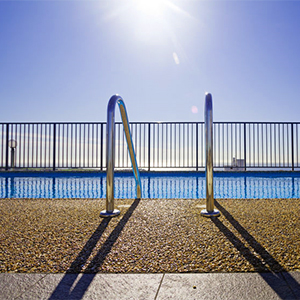
In Massachusetts, the state building code requires property owners to secure swimming pools behind 4-foot high fencing. There are different specifications for above-ground and underground pools, along with pools that use one side of the home as part of the fence.
Pools must be secured with locking devices that face outward away from the pool. The locks must be self-closing and self-latching.
Keep Pool Areas Free From Hazards
Be aware of other potential hazards beyond your actual pool. Your pool area may have outdoor furniture, rafts and floats, a diving board or a slide. One way to prevent a pool-related injury is to limit pool accessories. Secure the products you buy out of sight when you are not using your pool.
We caution you about purchasing diving boards and slides. Accidents involving these products can be serious, resulting in a head injury or a spinal cord injury, which can lead to long-term disability or death. Many homeowners have decided these are just not worth the potential safety risk.
Recognize that these products can be poorly designed or incorrectly installed. A product may not be the right fit for your pool design or reliably support your guests, even if it meets CPSC safety standards. However, if you choose to make a purchase, you should always hire an experienced pool professional to assist you with installation and your homeowner’s insurance agent to make sure your policy provides coverage.
Protect Young Children
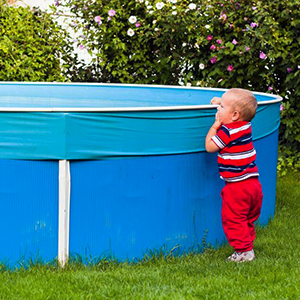 In Massachusetts, property owners are responsible for securing pools from young children. Property owners can be held liable for drowning or other injuries suffered by young children, whether they are invited guests or are trespassing. The law recognizes that young children may not understand when they approach a potential hazard. As a property owner, think about how your pool looks from the street, from your yard and from inside your home. Bright-colored rafts and large crowds can quickly capture a child’s attention. Then think about how you have secured your pool.
In Massachusetts, property owners are responsible for securing pools from young children. Property owners can be held liable for drowning or other injuries suffered by young children, whether they are invited guests or are trespassing. The law recognizes that young children may not understand when they approach a potential hazard. As a property owner, think about how your pool looks from the street, from your yard and from inside your home. Bright-colored rafts and large crowds can quickly capture a child’s attention. Then think about how you have secured your pool.
Keep Gatherings Small
When you invite guests over, keep gatherings small so you can observe the pool area and enjoy the company.
Closely Monitor Guests Near Your Swimming Pool
Never invite anyone over to your home to use your swimming pool when you are not there or are engaged in another activity, such as work. Ask if adult guests know how to swim and if children have attended swimming lessons.
If you have young children, commit to watch them and any friends they invite over closely, even if they are not using your pool. Limit the size of gatherings so you can give the children your full attention.
Make the same commitment to safety if you are the parent of a teenager, even if you normally give them more freedom. Set summer rules and make sure your teen understands: they can only have friends over when you are home and gatherings should be kept small. They should always ask before using the swimming pool and you will not permit alcohol.
Whenever you have any guests over, check that your pool is fully secured before they arrive. Not just from outside, but also from guests and children in your home and backyard. Once your guests arrive, it can help to utilize a pool camera, sounding alarm or other technology, even if no one is using the pool. You can also take the low-tech approach of sitting outside where you can see both the pool and the gate. This step shows your guests and children you are truly committed to safety and want them to have fun, but also act responsibly so everyone gets home safely.
Restrict Alcohol Consumption by Your Guests; Never Allow Teens to Drink At Your Home
 Carefully consider whether you want to allow your guests to consume alcohol in your home, especially when they come over to swim or are driving. This decision comes with a lot of responsibility. The easiest approach is to not allow alcohol consumption. If you do allow your guests to drink, practice moderation and good judgment. Never let them drive home under the influence.
Carefully consider whether you want to allow your guests to consume alcohol in your home, especially when they come over to swim or are driving. This decision comes with a lot of responsibility. The easiest approach is to not allow alcohol consumption. If you do allow your guests to drink, practice moderation and good judgment. Never let them drive home under the influence.
As for swimming, remember that alcohol and pools are a dangerous combination. According to the Centers for Disease Control and Prevention, alcohol use is involved in up to 70 percent of deaths associated with all water recreation. Drinking beer or liquor in the warm weather can contribute to dehydration, which can raise the risk for drowning and submersion injuries.
Massachusetts recognizes social host liability. There can be serious consequences for bad decisions. Homeowners can face criminal charges, including jail time, if they allow minors under 21 to consume alcohol at their home or any property they control, under M.G.L. c. 138 § 34 . Parents can also be criminally charged and convicted if police can prove they left their home and were aware minors were consuming alcohol there in their absence. Minors can also be criminally charged.
In addition to criminal charges, a homeowner can also face a civil lawsuit from those injured as a result of a minor’s alcohol consumption at their home.
Limit Cell Phone Use and Distractions
One can easily become distracted by an email, text or social media and this can be dangerous if you have a pool. If you are checking your cell phone, you could miss the moment someone needs your help. Every second counts when it comes to saving someone from drowning. The best approach is to limit cell phone use and enjoy your guests. Keep both your home and cell phone nearby, but for emergencies only.
Free Legal Consultation – Boston Personal Injury Attorneys
At Breakstone, White & Gluck, our attorneys provide aggressive representation and are committed to achieving the best result for clients. Founded in 1992, our personal injury law firm specializes in representing those injured by the negligence or wrongdoing of others and our attorneys have been consistently recognized by Super Lawyers and Best Lawyers in America. We have won numerous record-setting verdicts and settlements in negligence, product liability and medical malpractice cases in Massachusetts. We offer safety tips as part of our Project KidSafe campaign, through which we work to prevent injuries to children and families.
If you or a family member has been injured, learn your legal rights. We represent clients across Massachusetts, including in Boston, Cambridge, Somerville, Quincy, the North and South Shores, Cape Cod, Worcester and Central Massachusetts. For a free legal consultation, contact one of our Boston personal injury lawyers at 800-379-1244 or 617-723-7676 or use our contact form.
Property Owners Have a Responsibility to Shovel in Massachusetts
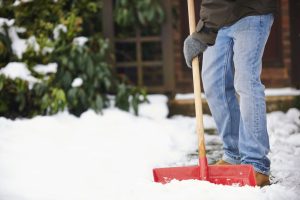 After our first nor’easter of the season, much of Massachusetts is now covered in a cold sheet of snow and ice. A total of 12.5 inches fell last weekend in part of Worcester County, while Middlesex County saw 2 to 7 inches of accumulation, according to MassLive.
After our first nor’easter of the season, much of Massachusetts is now covered in a cold sheet of snow and ice. A total of 12.5 inches fell last weekend in part of Worcester County, while Middlesex County saw 2 to 7 inches of accumulation, according to MassLive.
You may have shoveled, yet the work isn’t over. In these harsh New England winters, property owners must remember their legal responsibility to use reasonable care to keep their property safe. If you neglect to remove snow and ice from your driveway, someone could be injured and you could be held financially liable.
Commit to inspecting your property daily after a snow storm. Insect your driveway, walkways, roof and gutters. Go outside and walk from your front door to the end of your driveway and back. This is how your guests, mail carriers and package delivery professionals approach your home. This route needs to be safe.
A Property Owner’s Responsibility in Massachusetts
In Massachusetts, property owners have a duty to use reasonable care in clearing snow and ice so no one is injured. Papadopoulos v. Target Corp., 457 Mass. 368 (2010).
Papadopoulos v. Target Corp. changed more than 100 years of common law in Massachusetts and abolished the distinction between “natural” and “unnatural” snow and ice accumulations in premises liability actions. Property owners now have a duty to use the same reasonable care in treating snow and ice as they do other property hazards. It does not matter how the snow and ice accumulated. They owe a duty to all lawful visitors to use reasonable care to maintain their property in a reasonably safe condition.
How Often Should I Check My Driveway?
The best way to prevent a snow and ice injury is to treat snow regularly and promptly in the hours after a snowstorm, then also throughout the winter. This includes your driveway and walkways, as well as areas where cars, pedestrians and delivery trucks come in and out of the driveway. This activity can cause melting and refreezing for weeks after a storm.
Be aware of freezing and melting on other areas of your property as well, such as under roofs and gutters. Pay the most attention to your front step so delivery services and guests can safely access.
What if a Snow Plow Throws Snow on My Driveway?
It is still your responsibility to remove snow pushed onto your property so no one is injured. There is nothing more frustrating than shoveling your driveway, only for the plow to come back around a few minutes later. Again, the most effective response is to act quickly. Snow will be easier to shovel before it freezes to your driveway.
What If I Am Injured on Someone Else’s Property?
Use caution whenever you visit friends and family during the snow season. Try to find out if they have shoveled and salted their driveway and walkway before you visit. If you arrive and their driveway is iced over, consider visiting another time.
What if I am Injured on a Business Property?
Grocery stores and other businesses also have a responsibility to clear snow and ice and keep parking lots and other areas safe for travel after a snow storm. But there are times when snow and ice is left to accumulate or is not fully cleared. There are often several parties involved in commercial lease agreements, including a landlord, tenant and property management company. These parties may not always properly communicate or the party in charge of snow removal may be trying to save money. The party in charge may also not be experienced in hiring snow removal companies or realize the work involved.
When a business is negligent in clearing snow, slip and fall accidents can happen in parking lots. Another hazard is store floors and entrances. When snow melts, water accumulates and someone could slip and fall. A third danger is icy railings. Those in charge of the property have a responsibility to regularly inspect and remove snow and ice from railings, so a visitor doesn’t unknowingly reach for one and fall.
Since businesses can be open extended hours, property owners have a responsibility to address snow and ice accumulation promptly.
Be Aware of High Risk Areas for Mail Carriers and Package Delivery Professionals
Walk to the end of your driveway and make sure mail carriers and package delivery professionals can safely reach your front steps or mailbox.
Help the Elderly in Snow and Ice
The elderly are the most vulnerable to snow and ice injuries. If they fall, they are more likely to suffer long-term injuries. You can be proactive and prevent an injury by asking elderly friends, neighbors and family members if they need any help or anything at the grocery store. Encourage them to stay inside in the hours after a snow storm.
After a Snow and Ice Accident
If you are injured by a snow and ice accident, a doctor should evaluate you to determine if you fractured bones or suffered a concussion or other injuries.
If you were seriously injured, contact a lawyer and learn your legal rights. Contact a lawyer promptly. Under Massachusetts law, there is a limited time to notify a private property owner about injuries in cases involving snow and ice.
Free Legal Consultation – Boston Snow and Ice Accident Lawyer
With 100+ years combined experience, Breakstone, White & Gluck has been consistently recognized as a top-rated Boston personal injury law firm. Our attorneys have been recognized by Top 100 New England Super Lawyers, Top 100 Massachusetts Super Lawyers and Massachusetts Super Lawyers, in the specialties of personal injury and medical malpractice. The firm has also been recognized by U.S. News – Best Law Firms with Tier 1 rankings in personal injury and medical malpractice.
For a free legal consultation, contact Breakstone, White & Gluck at 800-379-1244 or 617-723-7676. You can also use our contact form.
Safety Reminders for College Students and Others Renting Apartments in Boston

College students and other renters have the right to live in safe apartments.
September has arrived. In Boston, college students returned a few weeks ago and the focus has been preventing the spread of COVID-19. But apartment safety is another important topic – for college students as well as other renters.
If you rent an apartment, your safety is paramount, and that has not changed during COVID-19. We encourage you to inspect properties before signing leases and moving in. Speak to your landlord, your college or your family if you find yourself in unsafe conditions.
At Breakstone, White & Gluck, our personal injury lawyers are experienced in cases involving landlord negligence resulting in the injury of our clients. In Allston and other parts of Boston, we have represented college students and other renters who have been very seriously injured in falls and fires. These are devastating stories, more so because landlords neglected their responsibilities to maintain safe premises.
During COVID-19, there is a very real risk that landlords may fall behind or neglect to maintain their properties. If you rent and see a hazard, be prepared to speak up so no one is injured.
We share a few safety tips and resources:
Notify Your Landlord of Hazards Promptly
If you see a hazard, notify your landlord or the property owner. We know it can be overwhelming to be 19 or 20 years old, living on your own for the first time and stressed about approaching a landlord. Honestly, this is never easy – even for renters with a few years of experience. But if you need help, you should reach out to your parents, family members or someone else you trust. Your safety – and the safety of your roommates and others in the building – is the priority.
When you contact your landlord, do so in writing. Describe what appears unsafe and email a photo. Ask them to come inspect the problem. If you do not make any progress, call your college or the City of Boston’s Inspectional Services Department.
Thoroughly Inspect Your Apartment Regularly
If you recently signed a lease, you likely inspected the apartment first. Your apartment may be in good condition and look well-maintained. But things can break. Safety hazards can emerge with use. Monitor conditions throughout the year so no one is injured.
If you are in the middle of a lease or have rented through COVID-19, you should also conduct a thorough inspection with a new eye.
You may see hazards you have learned to live with. A few examples include broken handles, railings and staircases. Collapsed wood on porches or decks, which will eventually rot away. Floors which are so worn you have already slipped on them. We will stop here. You cannot live with these things. Doing so could result in an accident – and will likely result in you losing part of your security deposit down the road. Alert your landlord now.
Never Forget the First Step of Safety: Smoke Alarms
Smoke alarms are the most basic tools you have to protect yourself. Make sure your apartment has working smoke alarms and carbon monoxide detectors at all times. Regularly replace the batteries and test them.
Check Out These Websites and Resources for Tenants
Know Your Rights When You Rent in Boston
City of Boston Inspectional Services
Attorney General’s Guide to Landlord and Tenant Rights
A Warning About Fake Apartment Listing Scams, WCVB-TV Boston
Injured by a Landlord’s Negligence in Massachusetts? – Free Legal Consultation
With more than 100 years combined experience, Breakstone, White & Gluck and our Boston personal injury lawyers fight for the rights of those injured by negligence and wrongdoing in premises liability cases. Our attorneys have been consistently recognized among the best lawyers in Massachusetts and New England by Super Lawyers and Best Lawyers in America. We provide experienced representation to those injured by the negligence of property owners and landlords, including in falls, porch collapses, fires and elevator accidents.
If you have been injured by unsafe conditions in an apartment, learn your legal rights. Call Breakstone, White & Gluck at 800-379-1244 or 617-723-7676 or use our contact form.
Use Space Heaters with Caution
During these cold and frigid days of winter, some of us are reaching for space heaters. If you can, first try to keep warm other ways: reach for blankets or an extra layer of clothing. But if you must use a space heater, use it with caution and make sure you use it properly. According to the National Fire Protection Association (NFPA), space heaters are involved in 32 percent of home heating fires and 79 percent of home heating fire deaths in this country. They are the second leading cause of home fire deaths behind smoking.
There have been several heartbreaking stories this winter. In Baltimore, six children were killed in a devastating fire last month. Officials are still investigating, but say it may have been sparked by a space heater. Just a few days ago, a 50-year-old Fall River woman tragically died after a space heater fire ignited her home.
According to the State Fire Marshal’s office, Massachusetts fire departments responded to 133 space heater fires from 2006 to 2015, resulting in 9 civilian deaths and 22 civilian injuries. Some 31 fire service members suffered injuries.
The Today Show aired a segment this morning, which shows just how quickly space heater fires can ignite. We encourage you to watch it.
Safety Tips for Properly Using a Space Heater
Three Feet Rule. Keep space heaters 3 feet away from all furniture and people. Put them in the center of the room.
Plug in to Wall. Plug space heaters directly into the electrical socket on the wall. Many extension cords cannot handle the strong level of electricity passed on from a space heater.
Beware of Automatic Switches. These switches are helpful, but are not a substitute for you turning off your heater yourself, unplugging it and putting it away.
Turn Space Heaters Off Properly. Turn off space heaters before you go to bed when no one can monitor them. Turn it off anytime you cannot supervise it.
Keep Space Heaters Away from Water. Do not use space heaters near sinks or in bathrooms.
Create a Fire Escape Plan. Family members should all know how to properly evacuate the home and be aware of all the routes.
Check Your Fire Alarm Once a Month. This is always a good idea, but extra important during the winter months.
Inventory Your Home. Because half of all home heating fires occur during December, January and February, now is a good time to walk through your home and look for hazards. Look outside, too. Make sure your home’s outside furnace vent is clear of snow. A blocked vent can put your family at risk for carbon monoxide poisoning.
Take Extra Precautions if Children Are in Your Home
Take extra precautions if you live with children. Establish a child-free (and pet-free) zone if you set up a space heater. Keep children as far away from the space heater as possible at all times. Also keep toys away. When finished, turn the space heater off and unplug it. Put it in a safe place which it out of reach of children.
Attorney Marc L. Breakstone Quoted in Massachusetts Lawyers Weekly Article on Antiquated Sidewalk Liability Laws
Attorney Marc L. Breakstone was quoted in a front-page Massachusetts Lawyers Weekly article about common law liability for injuries caused by sidewalk defects. The current common-law standard dates back centuries and prohibits many plaintiffs from recovering compensation for injuries. But a recent Appeals Court ruling may have finally set the stage for change.
Attorney Breakstone welcomes the idea. “I think that the common law is a living body of principles that has to evolve as social conditions and the realities of life evolve,” he said.
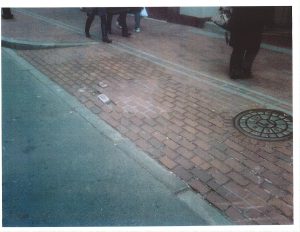 Earlier this month, the Appeals Court ruled in the case of Halbach, et al. v. Normandy Real Estate Partners, et al., concurring that a Superior Court judge had correctly granted summary judgment to the defendant, 100 & 200 Clarendon LLC, which operated, leased and maintained the John Hancock Tower and a neighboring garage in Boston.
Earlier this month, the Appeals Court ruled in the case of Halbach, et al. v. Normandy Real Estate Partners, et al., concurring that a Superior Court judge had correctly granted summary judgment to the defendant, 100 & 200 Clarendon LLC, which operated, leased and maintained the John Hancock Tower and a neighboring garage in Boston.
The Appeals Court rejected the plaintiffs’ argument that the defendant had been negligent in keeping the sidewalk free from defects and had failed to uphold their duty “to ensure a safe pedestrian walkway.”
The Appeals Court said the plaintiffs were suggesting “an entirely new duty” not recognized by state common law. The Appeals Court further noted that there is no affirmative duty to inspect and repair public sidewalks or notify the city.
In Massachusetts, cities generally have limited liability of $5,000 for personal injuries and property damage from defective ways, which also leaves plaintiffs who are injured with limited remedy.
Next Steps
In 2009, a man fell on uneven sidewalk after leaving his office at the John Hancock Tower in Boston. He suffered a bilateral rupture of his quadriceps tendon. After the fall, the defendant, 100 & 200 Clarendon LLC, did make some repairs, with no attempt to seek reimbursement from the city of Boston.
The man and his wife filed a lawsuit in Suffolk Superior Court in February 2012 and filed a motion for summary judgment in January 2014.
Appeals Court Judge James R. Milkey wrote that “the plaintiffs have a more forceful case for … a change in the law than the majority opinion suggests.”
The Supreme Judicial Court could now review the Appeals Court ruling and decide whether to extend a duty for sidewalks to private owners.
Attorney Breakstone told Massachusetts Lawyers Weekly this would be a “baby step for the evolution of our tort law.” It is a widely accepted principle that businesses making a profit from the customers they attract onto their premises have to provide safe egress, he said.
In 2010, the Supreme Judicial Court decision in Papadopoulos v. Target Corp. abolished the common-law distinction between natural and artificial accumulation of snow and ice. In Massachusetts, property owners are now responsible for clearing all areas of their property under the standard of “reasonable care,” regardless of whether they created the snow pile or if it naturally formed.
Read the full article on the Massachusetts Lawyers Weekly website. Subscription required for access.
About Attorney Marc L. Breakstone
Marc L. Breakstone has established a reputation as one of the top medical malpractice and personal injury lawyers in New England. His record-setting settlements and verdicts have earned him the distinction of being selected as one of the Top 100 Super Lawyers in New England and Top 100 Super Lawyers in Massachusetts. He has also been selected by his peers as one of the top medical malpractice plaintiff’s lawyers in the Super Lawyer balloting. In 2002, Attorney Breakstone was honored as one of ten “Lawyers of the Year” by Massachusetts Lawyers Weekly. More on Marc Breakstone.
About Breakstone, White & Gluck
The Boston personal injury attorneys at Breakstone, White & Gluck have over 100 years combined experience handling personal injury and premises liability cases for those who have been seriously injured. If you have been injured, it is important to learn your rights. For a free legal consultation, contact us at 800-379-1244 or 617-723-7676 or use our contact form.
City of Boston Will Inspect Addresses Where Students May Be Living in Overcrowded Conditions
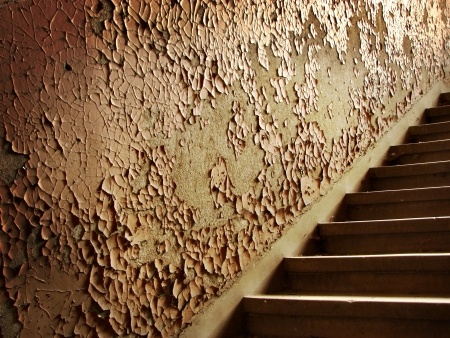 The City of Boston has identified 580 potentially overcrowded student apartments across the city from data provided by colleges and universities, The Boston Globe recently reported. City inspectors will now investigate whether the units are violating city zoning rules, which bar more than four full-time undergraduate students from sharing the same apartment.
The City of Boston has identified 580 potentially overcrowded student apartments across the city from data provided by colleges and universities, The Boston Globe recently reported. City inspectors will now investigate whether the units are violating city zoning rules, which bar more than four full-time undergraduate students from sharing the same apartment.
The city recently collected more than 25,000 student addresses from 31 colleges and universities so it can investigate potential apartment safety violations and overcrowding. If overcrowding is found, city officials plan to work with landlords and universities to move students to safer, alternate housing.
In 2013, Boston University student Binland Lee died in an apartment fire in Allston. She had been living at the Linden Street building with more than a dozen other people, a violation of city zoning rules. The Boston Globe Spotlight team later reported the property had been converted to a two-family home after a previous fire in the 1990s. This move blocked off a central staircase and restricted access. The building owner, Anna Belokourova, was later cited for running an illegal rooming house and not obtaining the permits needed to create bedrooms in the basement.
The Lee family has filed a wrongful death and premises liability lawsuit against Belokourova as well as Gateway Real Estate Group, which rented the apartment to her and six other housemates. Attorney Ronald E. Gluck of Breakstone, White & Gluck represented another woman who was seriously injured in the same fire.
In 2014, the Boston Globe Spotlight team investigated and found other instances of unsafe and crowded conditions for Boston students. It surveyed 266 students who lived off-campus in Boston and found nearly one-third were living in units with at least five undergraduate students, a violation of city zoning law.
Also from the survey:
- 25 percent of students reported having trouble reaching their landlord to report safety concerns
- 20 percent reported living without functioning smoke alarms
- 33 percent reported a lack of heat in their apartments
As these safety violations happen, more students are coming to Boston and living off-campus than in the past. Colleges are facing a space crunch and neighbors have opposed many of their efforts to build new dorms. The Boston Globe estimated more than 45,000 Boston students lived in off-campus housing in 2013, a 36 percent increase from 2006.
Our attorneys have represented Boston college students and other tenants who have suffered serious injuries as a result of housing code violations and overcrowding conditions. Here are summaries from two recent cases:
Overcrowded Student Housing Fire in Allston, Massachusetts
Our attorneys represented a woman who was seriously injured in a 2013 fire in an illegal apartment in Allston, Massachusetts. More than a dozen college students were living at the home in violation of city zoning ordinances. Read about this case.Students Injured in Escape from Quick-Spreading House Fire
Our attorneys represented one of two college students who were seriously injured a single-family home fire in Boston. One student suffered a brain injury when he jumped from a third-floor window to escape and landed on a concrete driveway. The other student broke her back and injured her ankle when she jumped off from the second floor. The case was settled at mediation. The case was reported by Massachusetts Lawyers Weekly on May 29, 2014. Subscription required.
Remember to Change Your Smoke Alarm Batteries
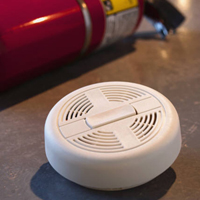 As Daylight Saving Time ends Sunday, we all have a very important chore: changing the batteries in our smoke alarms and carbon monoxide (CO) detectors. The good news is we have an extra hour in the day to get that chore done.
As Daylight Saving Time ends Sunday, we all have a very important chore: changing the batteries in our smoke alarms and carbon monoxide (CO) detectors. The good news is we have an extra hour in the day to get that chore done.
Smoke alarms provide necessary warning for us to act in a fire. Each year, more than 2,200 people die in unintentional home fires in the United States. The greater tragedy is nearly two-thirds of these deaths occur in homes with no smoke alarms or ones which do not work.
Here are a few additional suggestions for Boston and Massachusetts residents:
- You should have working smoke alarms on every level of your home, inside and outside sleeping areas.
- Purchase fire extinguishers for your kitchen, basement, work areas, and garage. Check them every few months to remind yourself of where they are, and make sure they are properly charged.
- Replace smoke alarms every 10 years and carbon monoxide detectors every five years.
- Talk to your family, roommates and landlord about your fire evacuation plan.
- Walk through your home and apartment and practice your fire evacuation plan. In an emergency, you and others may have to pass through unfamiliar areas.
- If you are a Boston college student renting an apartment, make sure you and your roommates are following house rules for cooking and that no one is smoking in the living area.
- Report any potential fire hazards to landlords promptly, including blocked access ways and electrical irregularities.
Trampolines, Inflatable Slides Among Dangers At Swimming Pool

Every year, thousands of people in the U.S. die in drownings. Many of these are young children who drown in swimming pools. Last summer alone, nearly 140 children under age 15 drowned in swimming pools and spa tubs, according to the Consumer Product Safety Commission (CPSC).
While the risk of personal injury and wrongful death from drowning has long been known, new dangers have emerged at pools in recent years. As many homeowners have removed diving boards for safety and insurance reasons, many others are purchasing inflatable slides, sports nets and trampolines to enjoy by the pool.
Two recent Massachusetts cases touch on these risks. Last month, the Supreme Judicial Court ordered a new trial in Dos Santos v. Coleta, where the plaintiff was paralyzed in 2005 when he jumped off a trampoline and struck his head in a two-foot inflatable wading pool. The pool and trampoline were owned by his half brother, the defendant.
The SJC found the trial court judge provided improper instructions when he said the jury could stop deliberating if they concluded the danger of jumping off a trampoline and into the pool was “open and obvious.”
The SJC ruled that the trial judge should have also instructed that a property owner is not relieved from correcting such dangers in cases where they can or should anticipate that the dangerous condition will cause harm.
“Because we conclude that a landowner has a duty to remedy an open and obvious danger, where he has created and maintained that danger with the knowledge that lawful entrants would (and did) choose to encounter it despite the obvious risk of doing so, we now reverse,” wrote Justice Cordy.
The plaintiff, Cleber Coleta Dos Santos, had been playing with his young son on the trampoline when he attempted to flip off and into the pool at his half brother’s Framingham home. He suffered permanent paralysis. His half brother and sister-in-law owned the home, but had moved out a few days prior, leaving the trampoline positioned next to the pool where it could be used in the backyard. The SJC noted that the homeowner disregarded warnings printed on the side of the pool against jumping or diving into the pool.
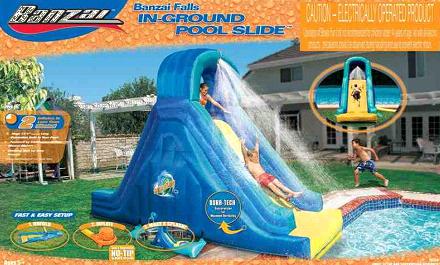
The Banzai inflatable slide is another product which has caused injury and death in Massachusetts in recent years.
You should not see any Banzai slides for in-ground pools this summer. They were recalled in May 2012, after a woman’s death in Massachusetts and two reports of serious injury in other states. The inflatable slides were designed to sit on the edge of a pool so swimmers can climb to the top and slide down as water sprays. But the structure easily deflated, removing support for the user. It was also easy to knock down, even without windy conditions.
In 2006, a 29-year-old Colorado mother visiting Massachusetts fractured her neck and struck her head while using a Banzai inflatable slide. When she stepped up and started to slide, there was not enough support and her head hit the pavement near the edge of the pool. The slide had been partially deflated. The woman died the next day at a Boston hospital.
In October 2011, a jury in Salem Superior Court ordered Toys R Us to pay more than $20 million to the woman’s family, finding the Banzai slide did not comply with federal safety standards for swimming pool slides. Toys R Us had sold the product to the victim. Amazon.com – the website where the product was sold through – and manufacturer SLB Toys USA settled with the woman’s family after the trial began.
In May 2012, Walmart and Toys R Us recalled 21,000 Banzai slides for in-ground pools, asking consumers to return the product for a full refund. Banzai continues to sell inflatable slides and water castles which are stand alone.
Toys R Us recently appealed the case to the Supreme Judicial Court, arguing the the Consumer Product Safety Commission regulation cited by the woman’s family does not apply to inflatable pool slides, but only to rigid pool slides.
Commercial Landlord Liability for Personal Injury Expanded In Massachusetts
By David White
Think Space Heater Safety
As the cold weather makes its return to Massachusetts, many people are bringing out the portable space heaters.
Always practice caution when using space heaters. Each year, space heaters cause death, injury and substantial property damage in both Massachusetts and across the country.
In 2007, U.S. fire departments responded to 66,400 home structure fires that involved heating equipment, according to the National Fire Protection Association. These fires killed 580 people, injured another 1,850, and were responsible for $608 million in direct property damage.
In Massachusetts, there were 57 space heater fires between 2004 and 2008, according to the Office of the State Fire Marshal. One in every six space heater fires caused a fatality.
The leading cause of space heater fires is when the appliance gets too close to combustible materials, such as furniture, carpeting or bedding. Other space heaters are also defective, improperly made and should never have been sold to consumers.
If you are using a space heater this winter:
- Keep the space heater at least three feet away from flammable items, such as rugs, curtains, blankets or clothing.
- Use a space heater to supplement your furnace. A space heater should not be your primary source of heat. If you are worried about having your heat shut off, learn more about the state’s Utility Shutoff Protection program.
- Do not leave a space heater in a room unattended while it is turned on or plugged in.
- Take caution not to use a space heater when you are sleepy. Many fires happen when someone falls asleep near a space heater.
- Do not allow small children near a space heater.
- Do not use an extension cord with your space heater. Many space heater fires start when an extension cord ignites a carpet, rug or wood floor. If an extension cord is needed, use one that is new and rated by the Underwriters Laboratory at 16-gauge or thicker.
- Purchase a space heater with an automatic shut off. This will stop the device from working if tipped over.
- Inspect your space heater for cracks and broken parts. If you see a problem, replace it before using.
For more information on space heater safety, visit the National Fire Protection Association’s website. We also urge you to check regularly to see if your space heater has been recalled. You can search for your model on the recall section of the Consumer Product Safety Commission website. If you don’t find anything, try a simple Google search. Space heaters are regularly recalled, as are other devices. Manufacturers make design mistakes, or errors are made somewhere along distribution. Other times products are marketed incorrectly. Even if you register products with the company, you really have to be proactive and search for product recalls yourself to protect your family. We should not have to check; manufacturers have a responsibility to fully test products before making them available to consumers. Because this does not always happen, it’s important to check for space heater recalls on your own.



